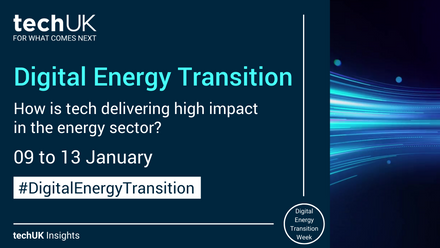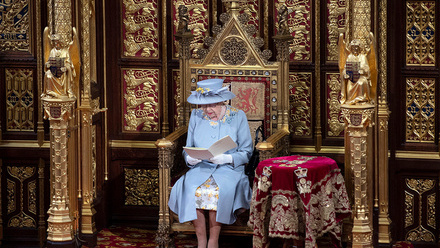Powering Up Britain: Energy Security Plan
The Government have released a report, Powering Up Britain: Energy Security Plan today on 30 March 2023.
The plan will build on our ambitions set out in the British Energy Security Strategy and the Net Zero Strategy to enable the transformation of the energy system, so it is secure, low-cost, and low carbon. The Department for Energy Security and Net Zero are aiming for a doubling of Britain’s electricity generation capacity by the late 2030s, in line with the aim to fully decarbonise the power sector by 2035, subject to security of supply, whilst recognising the role that UK’s oil and gas sector will play in that transition.
The Government will move towards energy independence by aiming for a doubling of Britain’s electricity generation capacity by the late 2030s but remain absolutely committed to maximising the vital production of UK oil and gas as the North Sea basin declines. Demand for oil, gas, and other fossil fuels will decline but they retain a crucial role. They are critical transition fuels, key to ensuring secure energy supplies and will form an important part of our future economy.
Objectives:
- Energy Efficiency
- Ambition to reduce energy demand by 15% by 2030.
- Nuclear
- One Final Investment Decision this parliament, progressing two in the next parliament.
- Ambition to increase deployment of civil nuclear to up to 24 gigawatts by 2050 (up to 25% of projected demand)
- Renewables (Cross Cutting Developments and Solar)
- Up to 70GW solar (roof and ground mounted) by 2035
- Renewables (Wind and Biomass)
- Up to 50GW by 2030, including up to 5GW floating wind
- Hydrogen
- Ambitions for up to 10GW of low-carbon hydrogen production capacity by 2030 with at least half from electrolytic hydrogen
- Ambitions for up to 1 GW of CCUS-enabled and up to 1 GW of electrolytic production in operation or construction by 2025
- Hydrogen Certification Scheme set up by 2025
- Business models for hydrogen transport and storage designed by 2025
- Carbon Capture and Storage
- Deploy 2 industrial clusters by the mid 2020s
- Deploy at least one power CCUS plant by the mid 2020s
- Deploy 4 industrial clusters by 2030
- Capture 20-30mtCO2 pa by 2030, including 6mtCO2 pa from Industrial CCS by 2030
- Deploy at least 5mtCO2 pa of engineered GHG removals (GGRs) by 2030
- 50,000 jobs enabled by CCUS by 2030
Key Recommendations:
- An update will be issued by the autumn looking at the future role that gas storage and other sources of flexibility can play in gas security.
- The Great British Nuclear will be set-up, with the responsibility to lead delivery of the new nuclear programme, backed with the funding it needs.
- Announcement of the Track-1 negotiation project list of carbon capture projects, will launch a process to enable expansion of the Track-1 clusters and have launched Track-2 of the CCUS cluster. sequencing process to establish two further CCUS clusters.
- Launch of the Floating Offshore Wind Manufacturing Investment Scheme, to provide up to £160 million to kick start investment in port infrastructure projects.
- Successful applicants will be announced of the first competition window for Strands 1 and 2 of the Net Zero Hydrogen Fund (development and capital co-funding) and intend to launch a second competition window in the spring, to be run by UKRI.
- The Government will consult in summer 2023 on options for a new approach to consumer protection in the energy markets from April 2024 onwards and on the future of the price cap on default tariffs.
- Energy efficiency upgrades will be delivered through the Great British Insulation Scheme and will extend the Boiler Upgrade Scheme to 2028 to further encourage the adoption of clean heat technologies.
- A competitive process will be launched to select the best Small Modular Reactor technologies, with the first phase commencing in April 2023.
- Action plans will be published this year on reducing the development time for transmission network projects and on accelerating electricity network connections.
- A shortlist of projects will be announced for the first electrolytic hydrogen production allocation round (capital co funding and revenue support) which the government intend to enter due diligence with and intend to launch a second allocation round in Q4 2023.
- The National Policy Statements which underline the national need for new energy infrastructure with the intention of expediting planning processes will be published for consultation.
- The Government accepts the Independent Review of Net Zero recommendation that it should commit to outlining a clear approach to gas vs. electricity ‘rebalancing’ by the end of 2023/4 and should make significant progress affecting relative prices by the end of 2024.
Digital Technology
- The Government will enable the acceleration of low-carbon flexible technologies and services deployment through but not limited to:
- Unlocking demand side flexibility and digitalisation at scale.
- Updating and reforming electricity market arrangements and governance to support flexibility.
- The Government will deliver the Flexibility Innovation Programme, worth up to £65 million, which seeks to enable large-scale widespread electricity system flexibility. This has already awarded over £17.5 million to successful projects through competitions including Interoperable Demand Side Response, Alternative Energy Markets, Vehicle-to-Everything, Inclusive Smart Solutions and a range of Data and Digitalisation programmes. The Government will announce further recipients of funding in 2023.
- The Government will work with Ofgem and Innovate UK to roll out digitalisation within the energy sector, building on their response to the recommendations of the Energy Digitalisation Taskforce.
- In 2023, the Government will also assess evidence from innovation projects under the Net Zero Innovation Portfolio to identify the appropriate environment for energy data sharing and integration of digital energy infrastructure. This includes a feasibility study exploring the needs case, benefits, scope, and costs of an energy system ‘digital spine'.
Members are invited to join a member call 11am on 4 April and please email [email protected] to find out more. To get involved with our work on climate please visit our Climate Action Hub.

Teodora Kaneva
Teodora’s rich background varies from working in business development for a renewable energy lobbying association in Brussels to the fast moving technology innovation startup scene in the UK.








